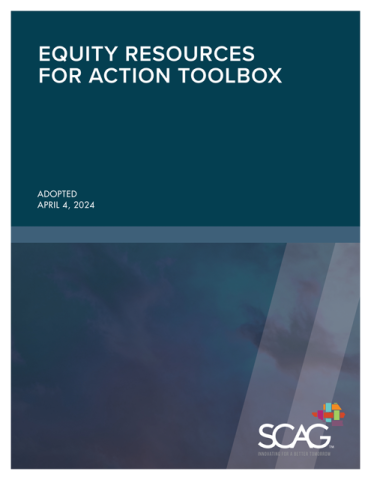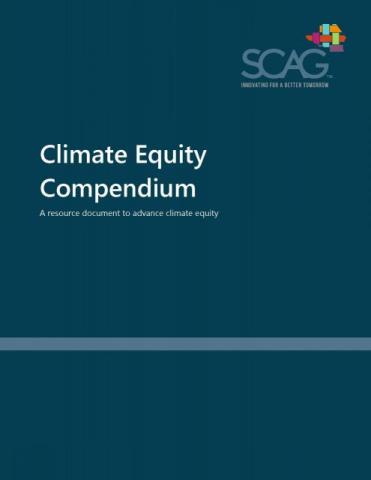Environmental Justice
Tracing roots back to the Civil Rights Movement in the 1960s and the environmental movement of the 1960s and 1970s, the environmental justice movement in the United States responds to discriminatory environmental practices—including toxic dumping, municipal waste facility siting and land use and transportation decisions that negatively affected communities of color.
The federal government defines environmental justice as “the just treatment and meaningful involvement of all people, regardless of income, race, color, national origin, Tribal affiliation, or disability, in agency decision-making and other Federal activities that affect human health and the environment so that people: (i) are fully protected from disproportionate and adverse human health and environmental effects (including risks) and hazards, including those related to climate change, the cumulative impacts of environmental and other burdens, and the legacy of racism or other structural or systemic barriers; and (ii) have equitable access to a healthy, sustainable, and resilient environment in which to live, play, work, learn, grow, worship, and engage in cultural and subsistence practices.” (Executive Order 14096)
Environmental justice in the SCAG region is challenged by diverse demographics, geography and economics, with extremes in household income and public health outcomes caused by numerous social, economic and environmental factors. The region includes heavily urban and entirely rural areas, each with its unique environmental risks, as well as terrain that creates obstacles to achieving environmental goals, such as air quality improvements.
SCAG pursues environmental justice by implementing improved planning practices and meeting federal and state requirements.
SCAG’s ongoing equity efforts directly inform and intersect with the environmental justice movement. For more information on SCAG’s equity efforts, visit the Inclusion, Diversity, Equity & Awareness webpage.
Contact
Help us keep our contact information updated. If you have any questions or comments, please contact:
Anita Au
(213) 236-1874
environmentaljustice@scag.ca.gov
Annaleigh Ekman
(213) 630-1427
environmentaljustice@scag.ca.gov
Connect SoCal 2024 Equity Analysis
Every four years, SCAG updates its visionary plan for the future of the region. On April 4, 2024, SCAG’s Regional Council adopted Connect SoCal 2024, including the “Equity Analysis Technical Report,” which documents the environmental justice analysis.
The Equity Analysis evaluates the potential impacts of implementing the Connect SoCal 2024 on communities, including both protected populations defined by federal regulation and priority communities identified by SCAG and regional stakeholders. This involved the development and evaluation of Priority Equity Communities, census tracts in the SCAG region that have a greater concentration of populations that have been historically marginalized and are susceptible to inequitable outcomes based on several socioeconomic factors.
Without a region-wide movement toward more equitable planning practices and policies, SCAG cannot guarantee that 2050 will show any progress on the equity performance measures. The Equity Resources for Action (ERA) Toolbox, previously called the EJ Toolbox, is a compilation of resources and example policies and actions that local agencies and groups can use to advocate for and advance racial equity in their communities.
Resources
- Connect SoCal 2024 Equity Analysis Technical Report
- Connect SoCal 2024 Equity Analysis Fact Sheet
- Priority Equity Community Technical Methodology and Analysis
- Priority Equity Community Shapefile
- Equity Resources for Action (ERA) Toolbox
Past Projects
- 2020 Connect SoCal Environmental Justice Technical Report
- Environmental Justice Toolbox (2021)
- 2016-2040 RTP/SCS Environmental Justice Appendix
- 2012-2035 RTP/SCS Environmental Justice Appendix
- Final 2008 RTP Environmental Justice Report
- 2004 RTP Technical Appendix G: Environmental Justice
- 2000 Compliance Procedure for Environmental Justice in the Transportation Planning Process
Equity Working Group
As part of the Regional Planning Working Groups (RPWG), SCAG launched a Equity Working Group (EWG) in June 2021, combining the former Environmental Justice and Public Health Working Groups. The purpose of the EWG is to engage stakeholders regarding SCAG’s regional and local planning activities and share efforts across the region to eliminate racial bias and barriers in land use and transportation planning. The EWG also highlights national best practices. Discussions focus on equity-related plans, programs, projects, tools, resources, and best practices. Because equity is intersectional, the EWG addresses multiple planning areas, including environmental justice (EJ), public health, and other related fields.
EWG meetings are typically held quarterly. To be notified about resources and upcoming meetings, subscribe to updates for the Equity Working Group.
Agendas and presentations for all RPWGs can be found on the RPWG webpage. A summary of topics covered by the EWG since June 2021 is available here: Equity Working Group History.
For more information, please contact Anita Au at environmentaljustice@scag.ca.gov.
Resources & Links
Policies and Guidance
- Executive Order 12898 on Environmental Justice
- Executive Order 14008 on Tacking the Climate Crisis at Home and Abroad
- Executive Order 14096 on Revitalizing our Nation’s Commitment to Environmental Justice for All
- U.S. Department of Transportation – Environmental Justice
- U.S. Environmental Protection Agency – Environmental Justice
- California Environmental Protection Agency Environmental Justice Program
- Governor’s Office of Planning and Research (OPR) General Plan Guidelines, Chapter 4.8 Environmental Justice Element
- National Resources Defense Council – The Environmental Justice Movement

